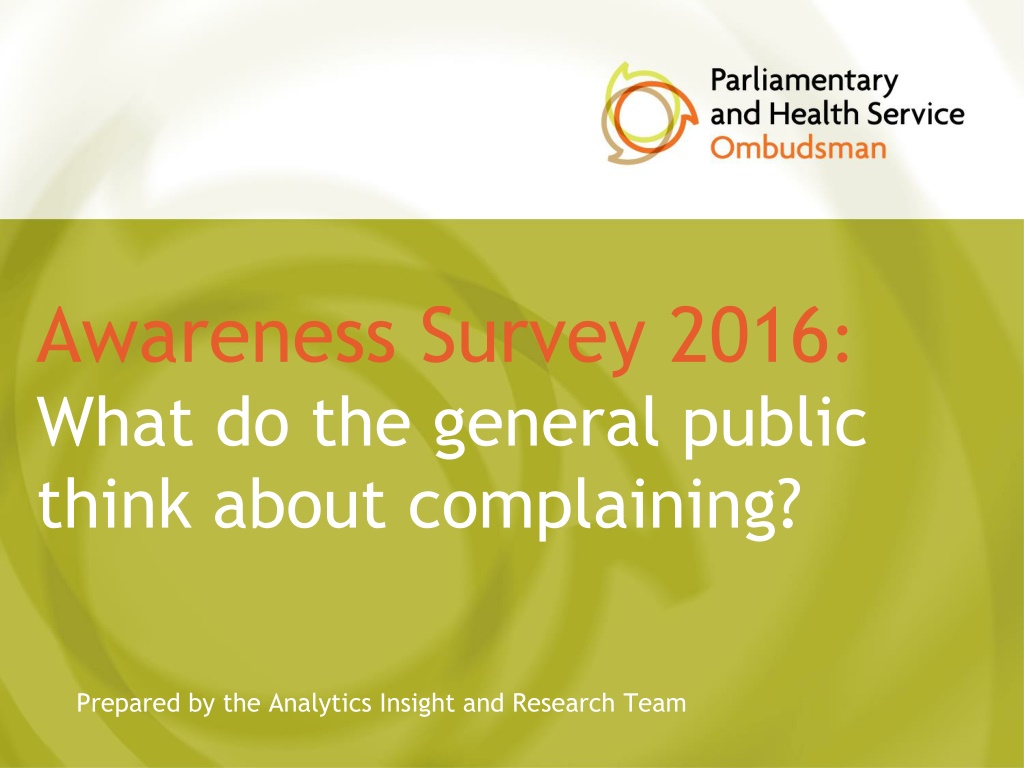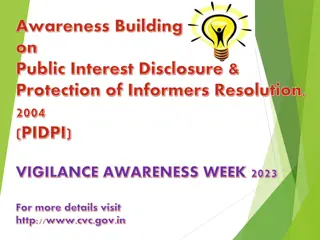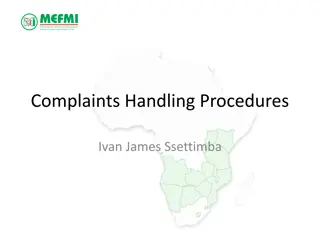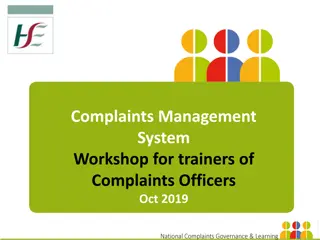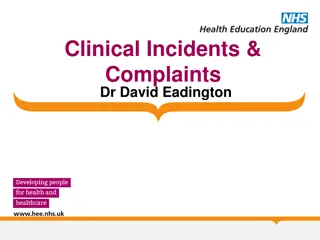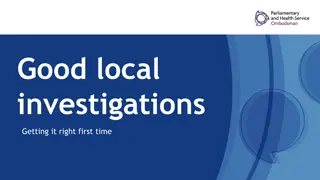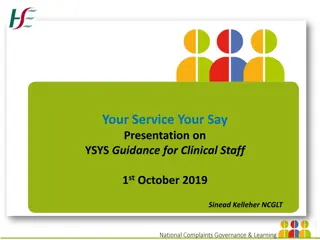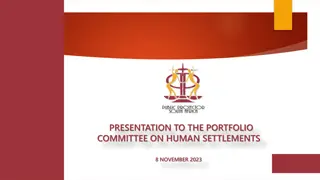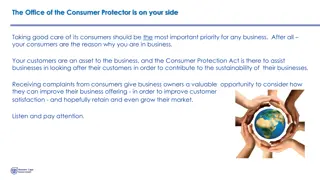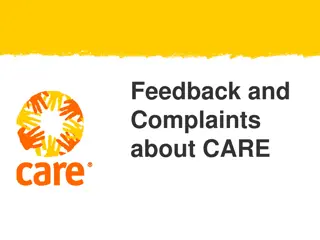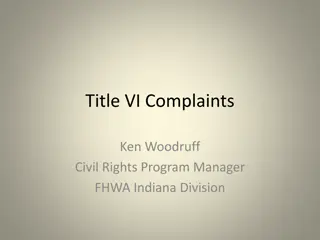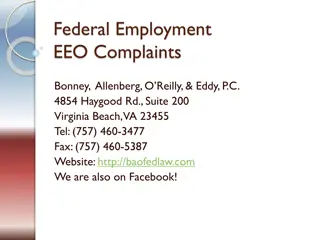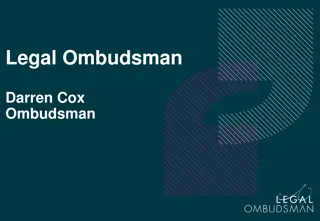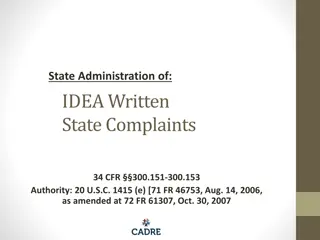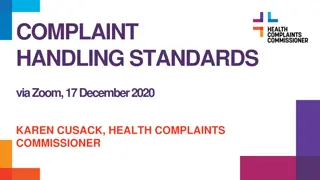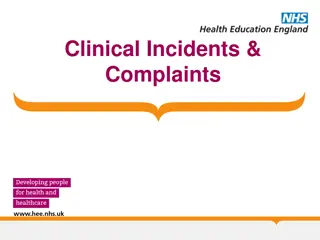Public Perceptions on Complaints about Public Services in the UK
According to the Awareness Survey 2016, the majority of the UK public believes in the right to complain about poor public services but only a small percentage actually do so. Despite feeling that people should complain, barriers such as feeling it's pointless, time-consuming, or not knowing where to complain hinder the process. The research highlights the disconnect between perception and action when it comes to addressing issues with public services.
Download Presentation

Please find below an Image/Link to download the presentation.
The content on the website is provided AS IS for your information and personal use only. It may not be sold, licensed, or shared on other websites without obtaining consent from the author. Download presentation by click this link. If you encounter any issues during the download, it is possible that the publisher has removed the file from their server.
E N D
Presentation Transcript
Awareness Survey 2016: What do the general public think about complaining? Prepared by the Analytics Insight and Research Team
Approach Survey conducted annually Representative UK online survey 4,303 members of the public participated Conducted on 6thApril 2016 over four days Undertaken & analysed by expert research firm, YouGov
Public perceptions on the right to complain The vast majority of the public agree that they have a right to complain about poor public service and think that people should complain 92% Agree that people have a right to complain about a public service if they are unhappy with it 90% Agree that people should complain about public services if they are unhappy with the service they receive However, just 36% of those who have experienced poor service in the past 12 months went on to complain
Unhappy with public services but not complaining 2015 2016 4,263 4,303 respondents respondents Of which 3,379 had contact with public services = 79% Of which 3,544 had contact with public services = 82% +3% Of which 926 people were unhappy with their interaction = 27% Of which 1,081 people were unhappy with their interaction = 31% +4% Of which 317 people went onto complain = 34% Of which 388 people went onto complain = 36% +2% Despite knowing that they can complain, and despite feeling that people should complain when experiencing poor service, the majority of people do not complain. This remained the same in 2015 and 2016.
Barriers preventing complaining 1 2 30% felt it would be pointless and make no difference 12% felt it would be too time consuming 9% thought it would be more hassle than it was worth 3 4 6% didn t know where to go to complain 5% didn t think it would be taken seriously 5
Conclusion If you have any further questions about this research please email the Research Team Thank you
